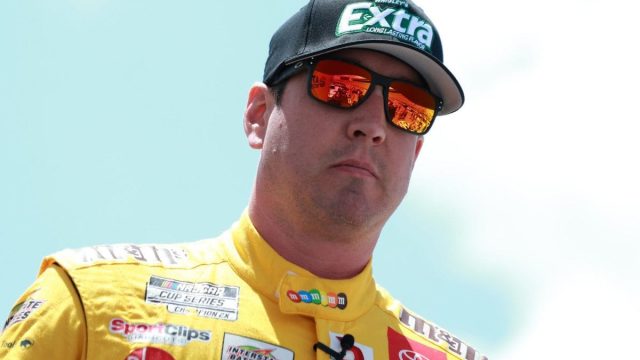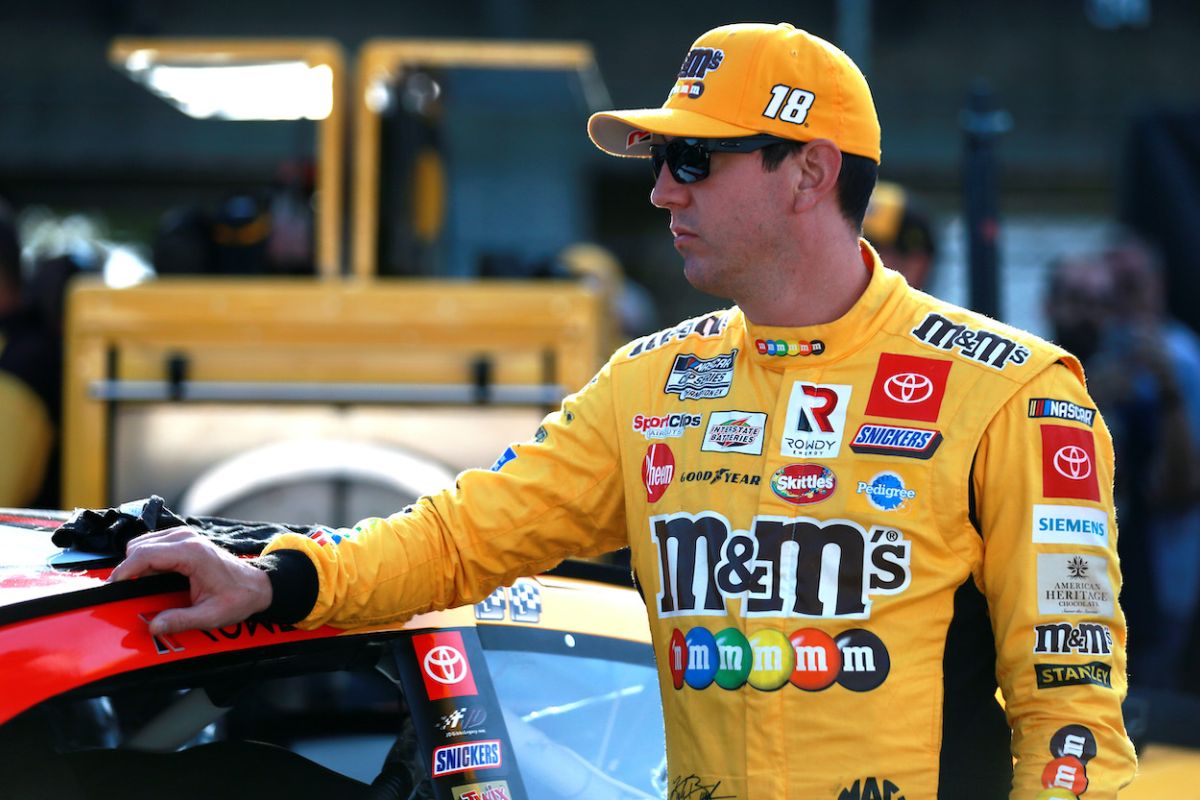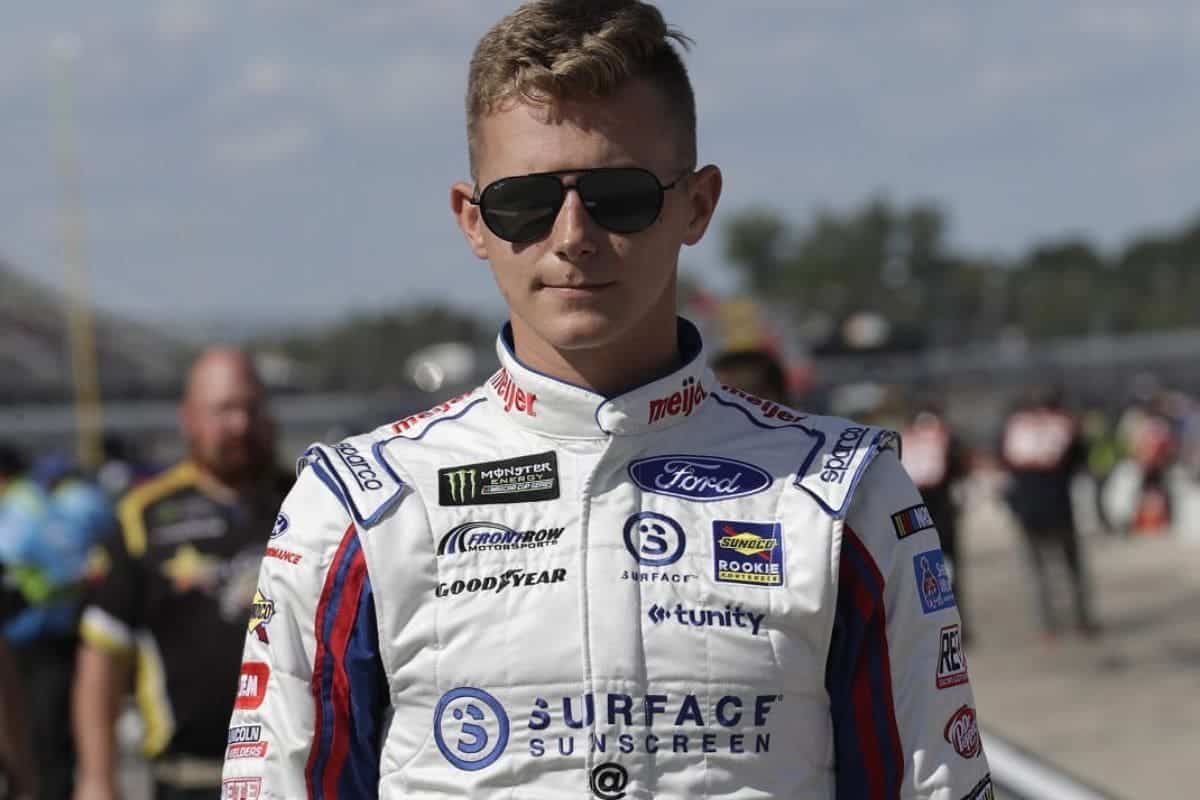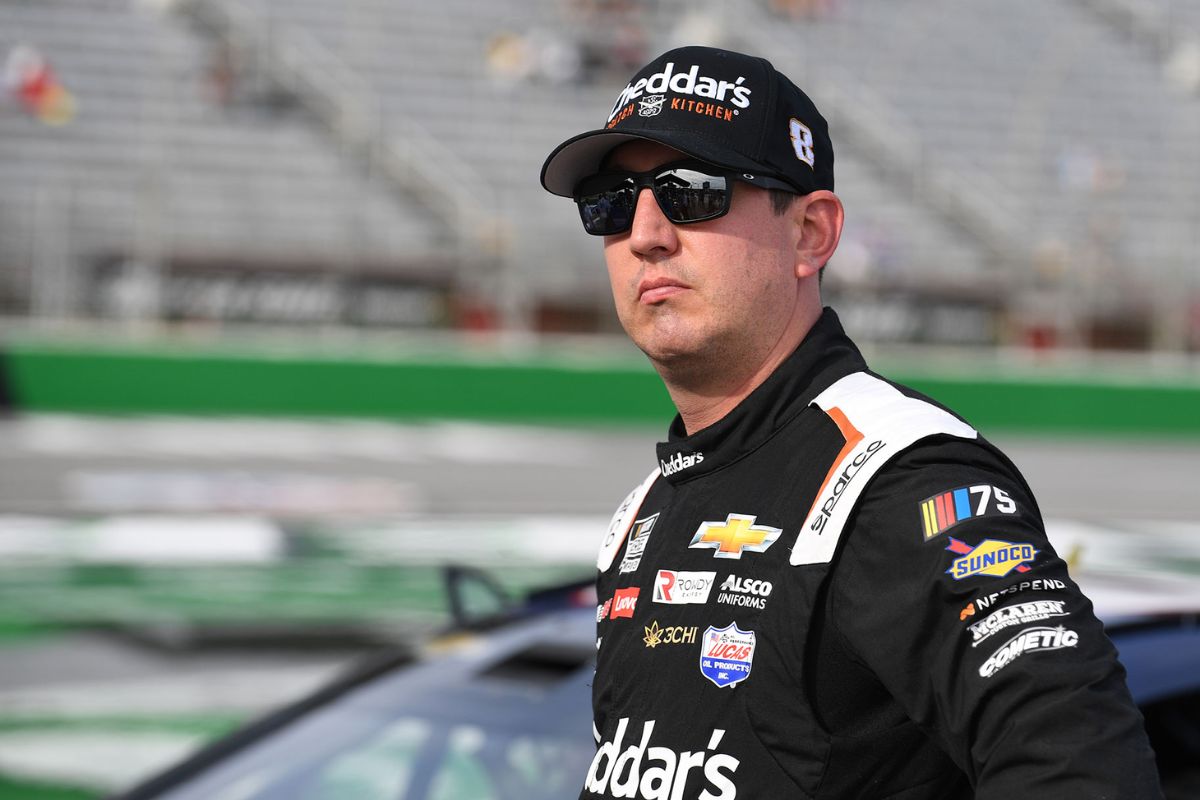Former NASCAR driver slams Kyle Busch‘s performance this season, calling it both inconsistent and dangerous. Matt Tifft points out that Kyle Busch’s aggressive driving style puts not just himself at risk but also other drivers on the track. With no wins in 2024 and missing the playoffs, worries about Kyle Busch’s tactics and strategy are growing. Matt Tifft stresses the importance of drivers being accountable to ensure safety during races. As the NASCAR season comes to a close, Kyle Busch’s struggles are raising questions about his career legacy and future in the sport.
Key Highlights
- Concerns about Busch’s aggressive driving style have raised safety issues, risking the lives of competitors on the track.
- Critics emphasize the need for accountability among drivers like Busch to ensure race safety and prevent dangerous situations.
- Performance pressures may lead Busch to prioritize speed over caution, increasing the likelihood of chaotic incidents during races.
- Historical safety issues in NASCAR highlight the importance of driver responsibility in maintaining a secure racing environment.
- Busch’s recent struggles and inconsistent performance exacerbate worries about his ability to safely navigate the evolving dynamics of competitive racing.
Kyle Busch’s Unusual Struggles This NASCAR Season
Struggling to find his rhythm this NASCAR season, Kyle Busch‘s unexpected absence from the playoffs has raised eyebrows among fans and analysts similarly. Known for his competitive advantage and remarkable track record, Busch’s failure to secure a single victory in 2024 is particularly jarring. This NASCAR season, he has been unable to navigate the complexities of what has been a fiercely competitive NASCAR landscape, leading to an early exit from the playoff rivalry.
Analyzing Busch’s performance reveals a series of factors contributing to this unusual downturn. Consistency, a hallmark of his racing style, has eluded him. The No. 8 RCR driver has experienced a series of misfortunes, from mechanical failures to tactical errors during races, which have collectively undermined his potential for success.
As the NASCAR season progresses to its finale, the prospect of a win appears increasingly remote, casting a shadow over his legacy within the sport. Moreover, Busch’s inability to adapt to evolving race dynamics and the competitive skill of his peers raises questions about his current approach.
While some may attribute his struggles to bad luck, a deeper analysis suggests a need for recalibration in both strategy and execution. The strain of expectation, combined with the heightened performance standards of NASCAR, may have compounded these challenges, leaving Busch at a crossroads in his illustrious career.
Insights from Matt Tifft on Kyle Busch’s Performance
As Kyle Busch grapples with a season characterized by unexpected challenges, insights from former Craftsman Truck Series driver Matt Tifft illuminate the broader implications for Richard Childress Racing (RCR). Tifft has articulated concerns regarding Busch’s performance, suggesting that the driver’s pursuit of perfection may be inadvertently straining the team’s capabilities.
“When they have their stuff together, you know they can win races. Unfortunately, they just haven’t had cars that have been good enough very often.” – Matt Tifft
In his exclusive interview, Tifft highlighted that while Austin Dillon achieved a race victory, it was blemished by controversial tactics that ultimately denied him playoff eligibility. This context casts further scrutiny on Busch, who is expected to be the leading force for RCR. Tifft’s observations suggest that Busch’s role as the primary driver has not translated into the anticipated results for the organization.
“He probably overdid a couple races in a row and ended up crashing out where he could have had solid top-five, top-ten finishes.”- Matt Tifft
Tifft’s frank remarks about RCR’s struggles signal a pivotal moment for the team, emphasizing that while they have a driver of Busch’s caliber, the synergy between his ambitions and the team’s execution remains a significant factor. As the NASCAR season progresses, RCR must reevaluate its strategies to harness Busch’s talent effectively, lest they continue to fall short of playoff aspirations.
Matt Tifft Discusses RCR’s Potential
In the current landscape of NASCAR, the potential of Richard Childress Racing (RCR) remains a topic of considerable discussion, particularly through the lens of Matt Tifft’s observations. Tifft’s insights reveal both the promise and the challenges facing RCR this NASCAR season, particularly with drivers like Kyle Busch and Austin Dillon.
Although Busch has historically outperformed Dillon when both drivers have competitive machinery, Tifft suggests that their recent struggles indicate a deeper issue within the team’s performance consistency.
Tifft notes that when RCR has its equipment dialed in, victory is within reach; however, the reality has been far from ideal. The veteran driver’s frustrations mirror those of the fans, as the team has frequently fallen short of its potential.
In particular, the latter part of the NASCAR season has seen Busch pushing the limits of his car in an attempt to salvage results, which has often resulted in detrimental outcomes, including crashes that have derailed promising finishes.
This inconsistency raises critical questions about the engineering and tactical decisions made by RCR. With a focus on refining their performance and improving car setups, there lies a considerable opportunity for the organization to reclaim its status as a competitive force in NASCAR.
The Risks of Pushing to the Limit
The pursuit of speed is a double-edged sword in NASCAR, particularly for drivers like Kyle Busch, who often find themselves teetering on the brink of control. As articulated by former NASCAR driver Matt Tifft, the strain to extract maximum performance can lead to precarious situations that hampers not only the driver but also others on the track.
The distinction between driving at 95 percent of a car’s capability and pushing it to the limit at 100 percent is critical. The former allows for competitive racing while maintaining safety; the latter invites chaos and potential disaster.
“When you have to overstep those bounds and try to catch up to cars that are just better than you, it puts you in a very dangerous position. If you drive it 95 percent of the car’s capability, you can run very strong races. But when you go from that 95 to 100 percent—that five percent difference—that’s where you run into incidents. You’re pushing it to the absolute limit, and sometimes that works, and sometimes it doesn’t.” – Matt Tifft
When drivers like Busch feel compelled to chase down faster cars, they may inadvertently overstep their vehicles’ limits. Tifft emphasizes that this five percent increase in effort can be the tipping point, where calculated risks morph into reckless actions. The inherent danger in this strategy lies in the unpredictable nature of racing; while pushing the envelope may yield moments of brilliance, it can just as easily result in catastrophic incidents.
Moreover, the psychological aspect cannot be overlooked. The relentless pursuit of speed often fosters a mindset where drivers prioritize performance over prudence, leading to decisions that can spiral out of control.
Kyle Busch’s Determination to Win
Kyle Busch’s relentless quest for victory is symbolic of a driver who refuses to yield to the challenges of a changing landscape in NASCAR. Despite an illustrious career marked by 63 wins and two championships, Busch now confronts an unprecedented reality: exclusion from the playoffs. This shift in status not only alters the stakes but also the psychological framework within which he competes. As he navigates this unfamiliar territory, his resolve remains steadfast, yet it raises questions about the adaptability of a NASCAR seasoned competitor.
Busch’s acknowledgment of missed opportunities highlights the fragility of his competitive edge. As he reflected on tactical missteps, it becomes evident that the mental game is as essential as the physical. With only two races left in the 2024 NASCAR season, the question persists: can Busch reclaim his position in the winner’s circle, or will this season mark a turning point in his storied career? His resolve will certainly be tested, as will his ability to adapt to this new racing paradigm.
“We just kind of missed out on one last week.” – Kyle Busch
News in Brief: Former NASCAR Driver Slams Kyle Busch
The critique of Kyle Busch’s performance highlights important concerns regarding the safety implications of aggressive driving in NASCAR. Matt Tifft’s insights emphasize the challenges faced by Busch this NASCAR season, in addition to the potential of Richard Childress Racing to adapt.
The pursuit of victory must be balanced with the risks inherent in pushing limits on the track. Ultimately, the ongoing evaluation of competitive strategies will be vital in ensuring both performance and safety within the sport.
ALSO READ: Kyle Busch Openly Insults Richard Childress With Money Offer? The Kansas Clash Fallout



